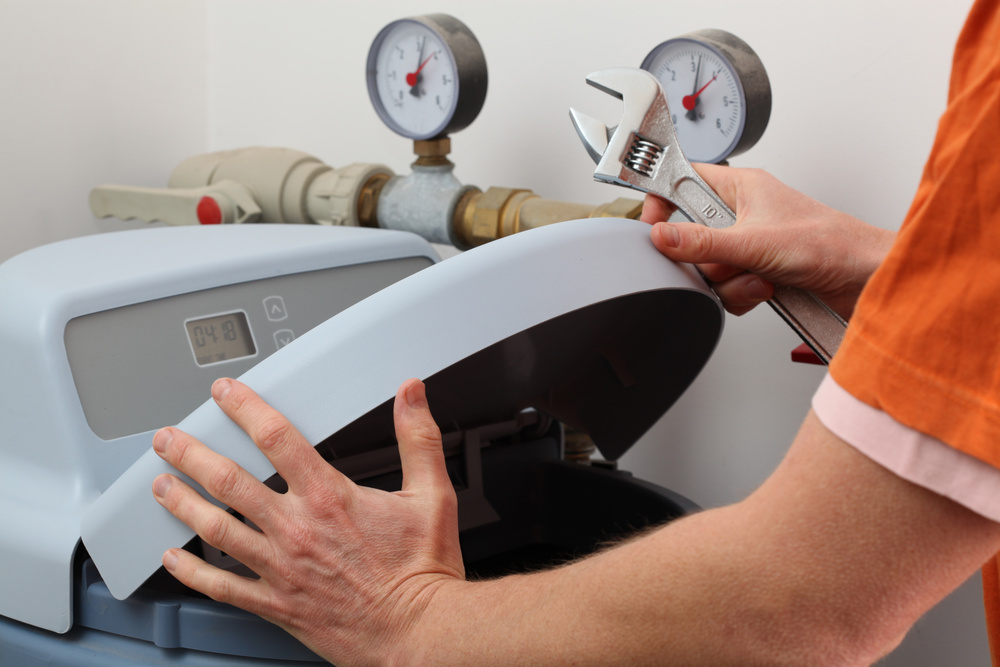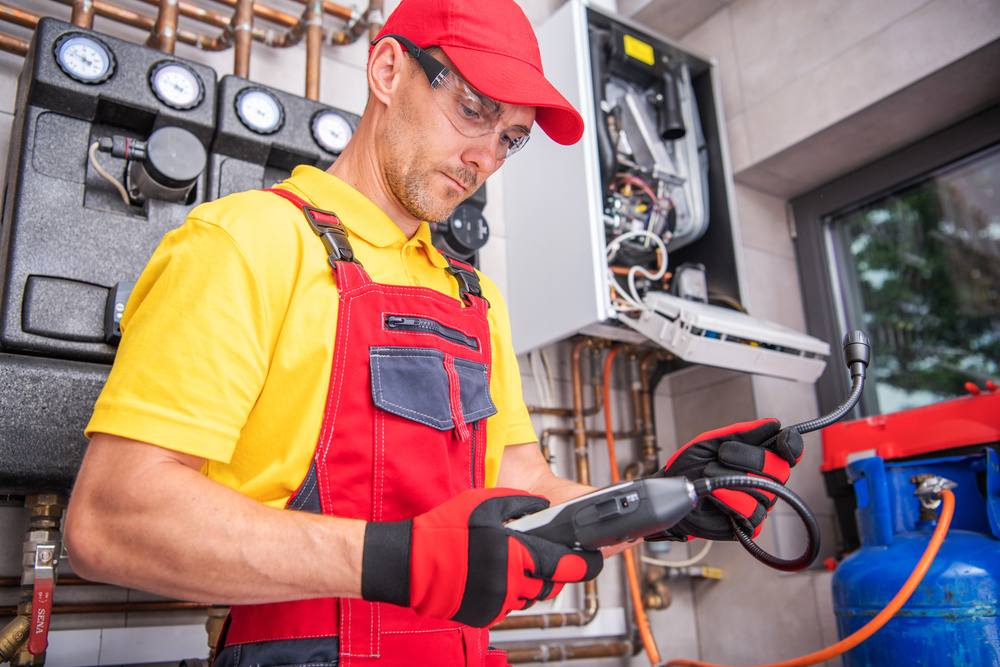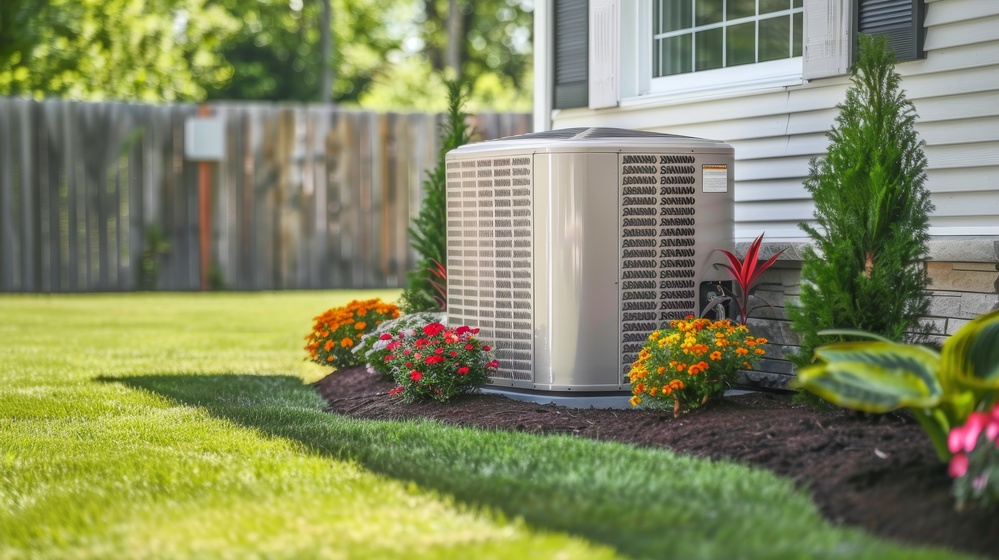How to Choose the Right EV Charger for Your Home
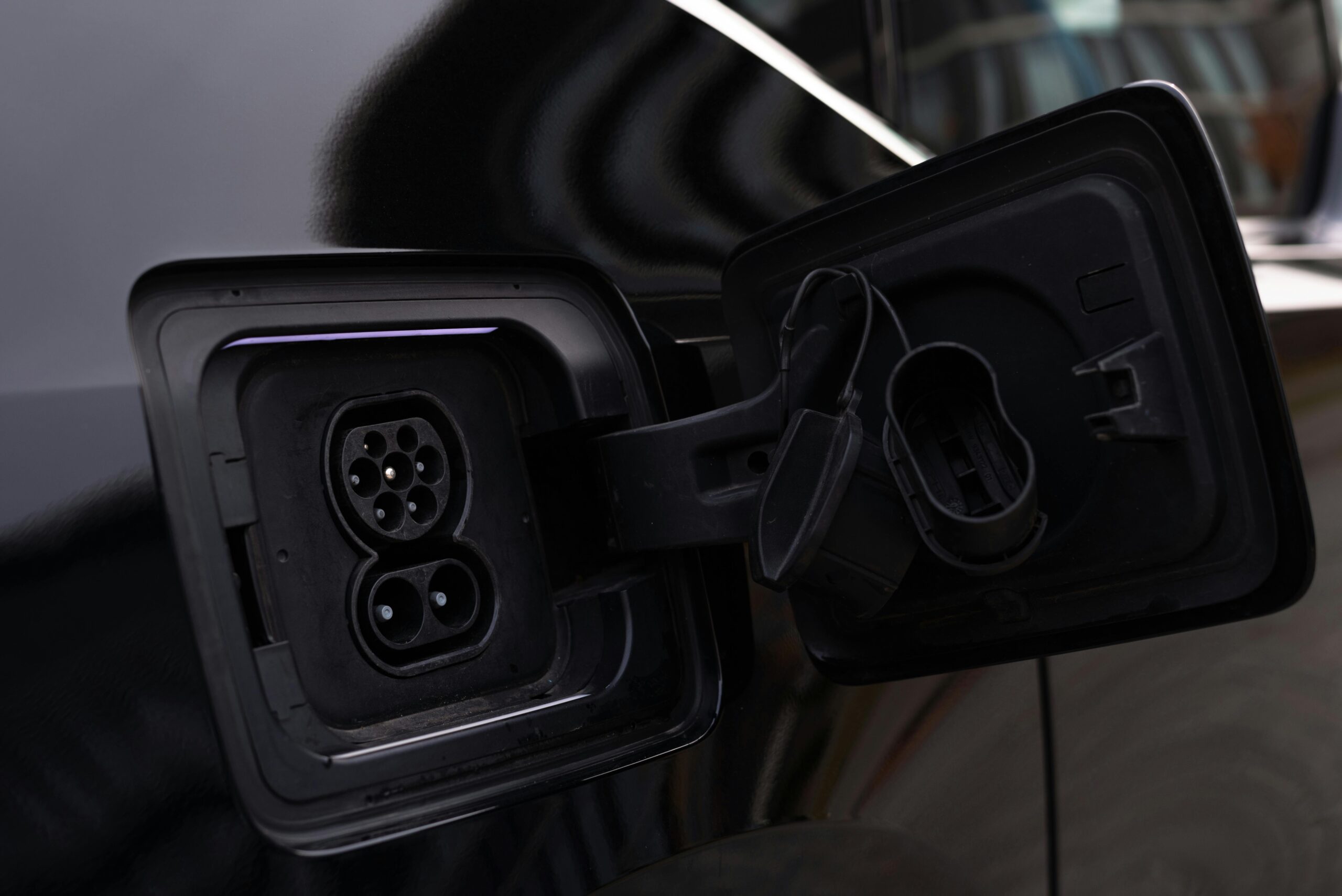
By Thomas Terry, SameDay Heating & Air
If you’ve switched to an electric vehicle (EV), that’s great! Now, it’s time to figure out how to keep it charged and ready to go, right from your own garage. Picking the right EV charger might seem daunting, but it comes down to understanding your options.
Level 1 and Level 2 chargers are the two most common home-use types. Each one has different charging speeds, installation needs, and ideal uses. Below, we’ll break it all down so you can choose the best fit for your lifestyle and car.
Understanding EV Charger Levels
Not all EV chargers are the same. Most people use a Level 1 or Level 2 charger at home. So, what’s the difference?
|
Feature |
Level 1 EV Charger |
Level 2 EV Charger |
|
Power source |
Standard 120V outlet |
240V outlet or hardwired setup |
|
Charging Speed |
3-5 miles of range per hour |
20-30 miles of range per hour |
|
Best for |
Low-mileage drivers, overnight charging |
Daily commuters, faster charging needs |
|
Installation |
Plug-and-play |
Requires professional installation |
|
Cost |
Lower upfront cost |
Higher upfront cost, but more efficient |
Key Factors To Consider When Choosing a Home EV Charger
Once you understand the difference between Level 1 and Level 2 chargers, the next step is figuring out what works best for your situation. A wide range of factors are at play here, including:
- Your daily driving habits
- Vehicle type
- Home electrical setup
- Tech preferences
Let’s take a look at how these factors play into your decision.
Charging Speeds and Your Driving Habits
A slow charger might be fine if you drive only a few miles daily. But if you’re commuting long distances, you’ll likely want a faster option. Your EV’s battery size also matters. Bigger batteries often take longer to charge. Choosing a charger that matches your daily mileage will ensure your car is always ready when you are.
Installation Requirements
Check your home’s electrical setup before buying a charger. Level 2 chargers often need a 240-volt outlet and might require an upgrade to your electrical panel. Like the pros at SameDay, a licensed electrician can ensure your installation meets local code and is safe for everyday use.
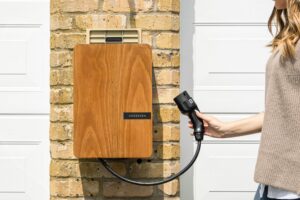
Compatibility with Your Vehicle
Not all chargers work with every EV. Some vehicles have specific charging needs, so double-check what your car requires. Most EVs use a standard connector, like the J1772, but some may need an adapter. Always make sure the charger you choose matches your make and model.
Types of EV Charging Connectors
There are a few charging connectors, but the most common for home charging is the J1772 plug. Tesla vehicles have their own connector but can use adaptors to work with most chargers. Knowing which connector your car uses will help you pick the right equipment and avoid surprises.
Smart Features & Connectivity Options
Today’s EV chargers can do much more than simply power your car. Many models come with smart features that make charging easier, more efficient, and even more affordable. If you like having control of your phone or want to track your energy use, here’s what to look for:
- Scheduling: Set your charger to run during off-peak hours when electricity rates are lower.
- Remote Access: Use a mobile app to start, stop, or monitor charging from anywhere.
- Energy Tracking: Keep an eye on how much electricity you’re using and what it’s costing you.
- Smart Home Integration: Some chargers can connect with systems like Alexa or Google Home for voice control.
- Automatic Updates: Software updates can improve performance or add new features over time.
Smart features aren’t required, but they make your charging experience much more convenient. This is especially true if you want to save on energy costs or monitor usage over time.
Cost & Incentives
Installing a home EV charger is an investment. The good news is that there are often ways to save. Let’s look at a breakdown of common costs and incentives:
- Equipment Cost: Level 1 chargers are usually included with the car. Level 2 chargers range from $300-$800, depending on brand and features.
- Installation Cost: Depending on your home’s electrical setup, professional installation can cost $500- $2,000.
- Federal Tax Credit: You may qualify for a federal tax credit that covers 30% of the installation cost, up to $1,000.
- Energy Savings: Charging at home is often cheaper than using public stations, especially if you schedule during off-peak hours.
Taking advantage of available incentives makes installing a high-quality charger much more affordable.
Get the Right EV Charger Installed Today
Choosing the right EV charger doesn’t need to be complicated. Once you know your driving habits, vehicle type, and home setup, it’s easier to pick the right charger. When you’re ready to install it, trust the local experts at SameDay to get it done safely and professionally.
Key Takeaways:
- Level 2 chargers are faster and better for daily drivers.
- Check your vehicle’s compatibility before buying.
- Consider smart features for added convenience.
- Look into rebates and tax incentives to save money.
- Always hire a licensed electrician for installation.
Want assistance choosing or installing the right EV charger in Utah? Contact one of our trusted IHS brands today for expert guidance and service you can rely on.
Call SameDay to schedule your EV charger installation today!


